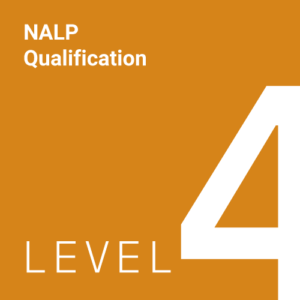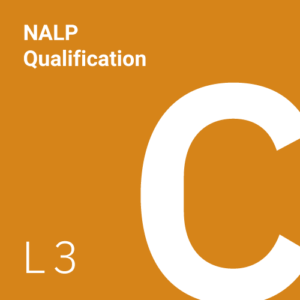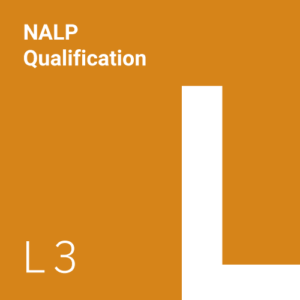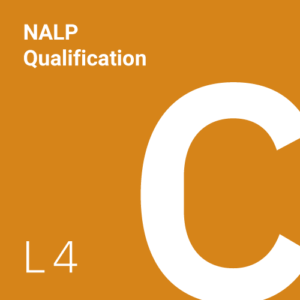- CPD Courses
- NALP Paralegal Qualifications
- NALP Qualifications Overview
- Level 3
- Level 3 Diploma
- Level 3 Certificate
- Level 3 Award
- L3 Introduction to Law for Paralegals
- L3 Legal Ethics and Responsibilities for Paralegals
- L3 Wills and Succession for Paralegals
- L3 Civil Litigation for Paralegals
- L3 Criminal Litigation for Paralegals
- L3 Commercial Law for Paralegals
- L3 Conveyancing for Paralegals
- L3 Employment Practice for Paralegals
- L3 Consumer Rights and Remedies for Paralegals
- Level 4
- Level 4 Diploma in Paralegal Studies
- L4 English Legal System – Single Unit
- L4 Contract Law – Single Unit
- L4 Law of Tort – Single Unit
- L4 Criminal Law – Single Subject
- L4 Wills, Intestacy & Family Provision – Single Unit
- L4 Civil Litigation – Single Unit
- L4 Criminal Practice – Single Unit
- L4 Matrimonial & Civil Partnerships – Single Unit
- L4 Conveyancing – Single Unit
- L4 Succession – Single Unit
- Level 7
- How to choose
- Learner information
- Recognition of prior learning
- FAQ
- About
- News
- Contact
Level 7 Diploma in Paralegal Practice
This course is designed to bridge the gap between an academic degree and the practical, procedural knowledge and skills necessary to be able to function effectively as a Paralegal Practitioner.
This course is designed to bridge the gap between an academic degree and the practical, procedural knowledge and skills necessary to be able to function effectively as a Paralegal Practitioner.
Applications for Level 7 Diploma in Paralegal Practice
If you wish to enrol for this course, please contact us first on 0203 745 5513
What's included
- All course material
- Assignment and test marking
- Full tutorial support
- One-year NALP affiliate membership
- Certificate on completion
Entry requirements
One of the following is required or equivalent – if unsure, please contact us or phone 0203 745 5513
UK Graduates require either an LL.B, BA LAW or CPE/GDL which has successfully been completed within the last 7 years. However, if a degree has been attained prior to this, then consideration may be given subject to the applicant’s level of experience since attaining their degree. Please contact NALP to discuss eligibility.
Graduates who have gained their LLB outside of the UK should have studied The English Legal System as part of their undergraduate course and provide evidence of this on applying for the the Level 7 Diploma in Paralegal Practice.
If you are a Law Graduate from outside of the UK and have NOT studied the English Legal System, you are eligible to study the Level 4 Diploma in Paralegal Studies rather than the Level 7 Diploma in Paralegal Practice. NB you must provide evidence of English Language proficiency at IELTS Level 6 or equivalent.
Assessment
Assessment is continuous by assignment. Assignments can be requested when the learner is ready, and once requested and sent, the Learner will have a four week period in which to complete the assignment and return by the due date.
Assignments are marked and graded either with a pass (45 – 64%), merit (65 – 79%) and distinction (80-100%).
Tutors are on hand to answer any queries that the student may have and give unlimited help and guidance if there is anything that the student may not fully understand with regard to the material.
Compulsory units
Description
The aim of this unit is to provide the Learner with the practical skills to be able to critically analyse and explain the nature and formulation of corporate and non corporate business structures including personnel and to also critically review, assess, justify and explain financial and tax implications of corporate and non-corporate business structures. The Learner should be able to apply the appropriate legislation throughout and in particular have a good knowledge and understanding of the Companies Act 2006.
Learning Outcomes
Understand the various types of Business Structures available to organisations ,be able to evaluate and analyse how a company is incorporated and understand the ‘veil of incorporation’ and lifting the veil, be able to describe Public and Private Companies and have a thorough understanding of the Incorporation Procedure and the Key Players involved, be able to analyse the various reasons and consequences of Liquidation of Companies, have a thorough understanding as to the Creation and Dissolution of Partnerships, critically analyse Companies versus Partnerships, describe and evaluate Financial Aspects of Business and demonstrate an understanding as to when Reconstructions, Mergers and Takeovers are applicable and the procedure for these.
Description
In this unit you’ll learn the practical skills to be able to evaluate the information to a complex case relating to inheritance of property after death, critically assess, explain and justify the appropriate procedures and advice given to clients at each stage of the case.
Learning Outcomes
You’ll be able to apply the Wills Act 1837, the Administration of Estates Act 1925 and other legislation.
- Introduction to the principles of succession
- Wills
- Formalities: Family provision, testacy and intestacy
- Personal representatives
- Grants of representations
- The procedure in administering an estate
Description
You’ll develop the practical skills to be able to carefully examine and analyse the procedure relating to buying and selling a freehold and leasehold property.
Learning Outcomes
You’ll learn how to apply the Law of Property Act 1925, Land Registration Act 1925 and Land Registration Act 2002.
- Overview of Property Law
- Overview of steps in a Conveyancing Transaction
- Conveyancing terminology;
- Pre-Contract stage
- Exchange of contracts
- Post contract / pre-completion: Completion
- Post completion: Leaseholds: Possessory Title
Description
You’ll carefully examine and analyse the procedure relationship to family matters including marriage, annulment, divorce, civil partnership and orders affecting children. Learning via scenarios you’ll be able to assist and advise clients on various procedures and apply Family Procedure Rules.
Learning Outcomes
- Introduction to the principles of marriage and Civil Partnerships:
- Marriage defined
- Null, void and voidable marriages
- Capacity to enter into civil partnerships
- void and voidable civil partnerships
- Grounds for Divorce and Dissolution of a Civil Partnership
- Divorce procedure:
- Ancillary Relief
- Domestic Proceedings and Orders in the Magistrates Court
- Procedure on dissolution of a Civil Partnership
- Pre-Nuptial Agreements
Description
In this unit you’ll gain an in-depth knowledge and understanding of criminal litigation. Through practical skills learned, you’ll apply this to a given scenario. From taking instruction from the client, advising them throughout the process, assisting them in trial and once matters have been concluded.
Learning Outcomes
Criminal Court Structure
Preliminary Matters
Powers of the Police
The Police & Criminal Evidence Act 1984
The methods of commencing proceedings
After Arrest; Public Funding in Criminal Proceedings
Bail
Summary Trial
Trial by Indictment: Sentencing;
Appeal
Description
Through case studies and scenarios you’ll carefully examine and analyse the civil litigation procedure. You’ll learn the practical skills required to assist and advise clients on Civil Court Proceedings. You’ll be able to apply Civil Procedure Rules to all aspects of the procedure and identify certain areas of procedure where the case may not follow the normal track.
Pre-action procedure:
Pre-action considerations
Pre-action steps
Evidence
Commencing proceedings
Commencing a Claim
From issue of a claim to trial
Preparation for the hearing
Forms of Judgment
Enforcement of Judgments;
Costs
Learning Outcomes
Assess and evaluate Civil Litigation procedure.
Critically evaluate pre-action procedure, considerations and steps to take prior to going to Court
Critically evaluate the process of how to commence a claim in Court
Critically evaluate the process of Civil Court proceedings in relation to a claim
Draft and evaluate the different statements of case for a given scenario
Qualification
Level 7 Diploma in Paralegal Practice
Compulsory units
- Civil Litigation
- Criminal Practice
- Matrimonial and Civil Partnership Disputes
- Conveyancing
- Succession
- Corporate & Business Structures
Study type
Distance learning



